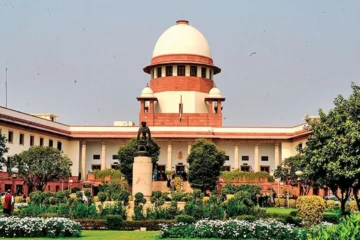Introduction
In the intricate tapestry of Indian politics, alliances and support are often strategic moves that send ripples across the political spectrum. West Bengal’s Chief Minister, Mamata Banerjee, recently made headlines by offering her “Outside Support to INDIA” to the Indian National Developmental Inclusive Alliance (INDIA). This move has sparked considerable debate and speculation about its implications and the message it conveys. Understanding the significance of this gesture requires delving into the context, potential motivations, and the intended audience of Banerjee’s signal.
Context: The Formation of INDIA
The Indian National Developmental Inclusive Alliance (INDIA) is a coalition of opposition parties formed to present a united front against the ruling Bharatiya Janata Party (BJP) in the upcoming general elections. This alliance aims to pool resources, consolidate votes, and create a robust alternative to challenge the BJP’s dominance. Mamata Banerjee’s Trinamool Congress (TMC) is a key member of this coalition, making her support and actions within this framework crucial.
The Nature of “Outside Support”
“Outside support” in political parlance typically means backing a coalition or government from outside the formal structure of power, without being part of the executive or holding ministerial positions. This form of support allows a party to influence decision-making and policy direction without the responsibilities and potential liabilities of direct governance. For Mamata Banerjee, offering outside support to INDIA suggests a strategic manoeuvre to maintain influence while keeping her options open.
Internal Dynamics within INDIA
Managing Power Equations
One of the critical aspects of Banerjee’s signal is managing power equations within the INDIA alliance. As a coalition comprising diverse parties with varying ideologies and regional strengths, balancing influence and leadership roles is a complex task. By opting for outside support, Banerjee could be positioning herself as a kingmaker, wielding significant influence without being bound by the constraints of coalition governance.
Minimising Internal Conflicts
Internal conflicts and power struggles are inevitable in any coalition. Banerjee’s move can be seen as a strategy to minimise potential friction within INDIA. By staying outside the formal government structure, she can avoid direct clashes with other coalition partners while still advocating for policies and decisions that align with her party’s interests and vision.
Signalling to the BJP and National Politics
Strategic Opposition
Mamata Banerjee’s announcement also serves as a strategic signal to the BJP. It underscores her commitment to opposing the ruling party and reinforces the narrative of a united opposition. This move is designed to rally support among anti-BJP voters, presenting a formidable front against the incumbent government.
Positioning for Future Alliances
In the fluid landscape of Indian politics, alliances can shift rapidly based on electoral outcomes and changing political fortunes. By offering Outside Support to INDIA, Banerjee keeps her party’s options open for future alignments. This flexibility could be crucial if the political scenario necessitates new coalitions or if the balance of power shifts significantly.
Message to the Voters
Upholding Autonomy and Regional Interests
For her voter base in West Bengal, Mamata Banerjee’s stance reaffirms her commitment to regional autonomy and interests. By supporting the national alliance from the outside, she signals that she prioritises West Bengal’s unique needs and concerns while still contributing to the broader goal of national governance.
Commitment to Democratic Principles
Offering outside support also aligns with Banerjee’s image as a champion of democratic principles and a defender of federalism. It suggests a willingness to collaborate for the greater good while retaining the independence and accountability that her party promises to her constituents.
Conclusion
Mamata Banerjee’s offer of Outside Support to INDIA alliance is a multifaceted political manoeuvre. It balances internal coalition dynamics, signals opposition to the BJP. And communicates a message of autonomy and commitment to democratic values to her voters. In the ever-evolving chessboard of Indian politics, such moves are critical in shaping alliances. Influencing outcomes, and positioning for future power plays. As the political narrative unfolds, the true impact and implications of Banerjee’s gesture will become more apparent. Reflecting the intricate strategies that define Indian political discourse.

Goutam Mondal is a professional News Reporter at Wishma TV. He writes about West Bengal State News at Wishma TV.



